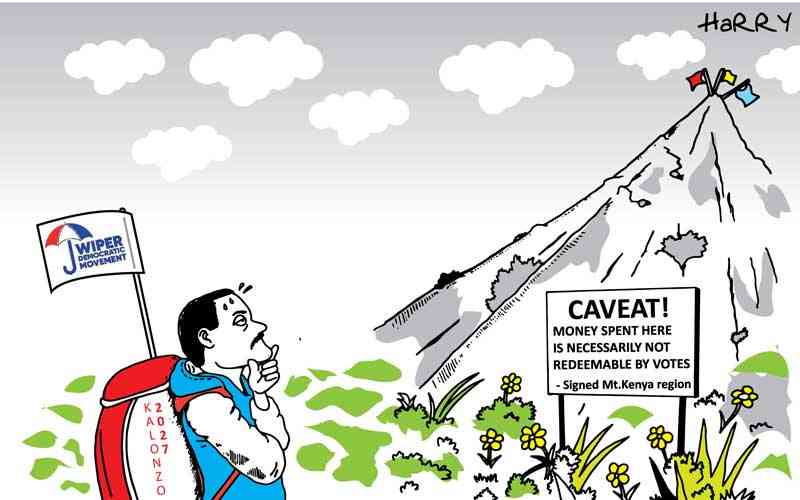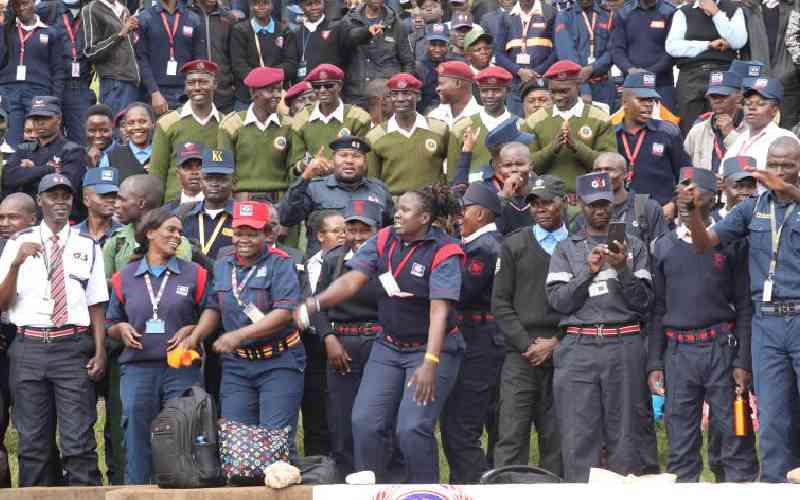American politician and activist Cynthia McKinney once said, “Politics is the authoritative allocation of values in a society; politics is about values being reflected in public policy; and we engage in the political process because we want our values reflected in public policy.”
Over and above individuals and political party affiliations, this remains among the chief reasons why citizens across the world engage in political processes in their country. Political processes profoundly define the state of security, governance and economic growth of any country. And now, with an interconnected global village, the success of a political process in one nation causes a ripple response in other nations in terms of economic engagement, diplomatic partnerships and policies governing the movement of people and goods.
Conventionally and the world over, election processes have a direct impact on the performance of the economy. In Kenya, the historical events of elections are among options of recurrence considered by economic players while weighing their risks in an election year.
Growth prospects
What politicians proclaim at this time, less than a month away from election day, is crucial to the economy’s growth prospects. Words of division are bound to obliterate the stability of the country before and after the elections, and affect investment decisions.
Economic prospects are high for Kenya as East Africa’s economic powerhouse while its capital serves as regional headquarters for some major multi-nationals. As it were, it is a hub for innovation, business and futuristic cornerstones for major industries that will change the paradigms of business in Africa and the world.
Nevertheless, the inherent challenges the country faces could be major stumbling blocks for prospective economic growth if the political class fails this time.
It is true that elections are bad for Kenya’s economy and since 2017 is not immune from the factors that fuelled the economic slumps in the past, we are by no means obliged to allow those misdeeds to manifest this time around. Elections are now the biggest hurdle to the economy. An examination of past economic surveys shows that the polarising and violent nature of Kenyan elections is the root cause of economic slowdowns.
According to the World Bank, Kenya’s economic performance since the incipience of multi-party elections has dropped during election periods, with 1992 and 2007 recording lows of 0.2 and 0.25 per cent respectively. Although the 2013 polls relatively created hope for the economy with minimal slumps, the 2017 polls shall be a test of this reality, especially now that the incumbent president is on the ballot too.
Highly dependent
With that, free, fair and credible elections will be highly dependent on the events preceding election day. The IEBC’s concerted efforts to preach peace through the presidential candidates, heads of the justice system and anti-corruption commission and civil society are highly commendable. Nevertheless, that should be the message that politicians pass on to grant the constitutional institutions mandated to see us through this process credibility and ample time to execute their responsibilities.
It should be clear what slowed economic growth means to the economy. It means that companies have fewer opportunities to grow and will hire fewer people, making jobs harder to come by. It also means less revenue for Government and more taxes. Individuals will have less money to spend, fewer job opportunities and sky-high costs of living. It is a direction in which no one wants to go.
All in all, a crucial part remains with the media to showcase resilience, professionalism and cognisance of what false and daunting messages could do to the country.
It is not solely the role of political leaders to confront the elections with soundness but also Kenyan media to report overtly and in a manner that saves citizens from the political heat. A peaceful election is the will of all Kenyans.
Mr Boi is a monitoring and evaluation specialist. [email protected]
Stay informed. Subscribe to our newsletter
 The Standard Group Plc is a
multi-media organization with investments in media platforms spanning newspaper
print operations, television, radio broadcasting, digital and online services. The
Standard Group is recognized as a leading multi-media house in Kenya with a key
influence in matters of national and international interest.
The Standard Group Plc is a
multi-media organization with investments in media platforms spanning newspaper
print operations, television, radio broadcasting, digital and online services. The
Standard Group is recognized as a leading multi-media house in Kenya with a key
influence in matters of national and international interest.
 The Standard Group Plc is a
multi-media organization with investments in media platforms spanning newspaper
print operations, television, radio broadcasting, digital and online services. The
Standard Group is recognized as a leading multi-media house in Kenya with a key
influence in matters of national and international interest.
The Standard Group Plc is a
multi-media organization with investments in media platforms spanning newspaper
print operations, television, radio broadcasting, digital and online services. The
Standard Group is recognized as a leading multi-media house in Kenya with a key
influence in matters of national and international interest.









